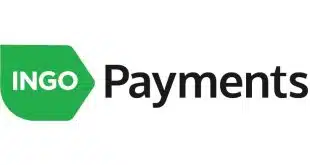A proposal that would have changed network rules to dramatically speed up automated clearing house transactions fell short on Friday of the votes needed to be enacted by NACHA, the ruling body for the ACH system.
The vote on the proposal, which would have provided for same-day instead of next-day settlement of ACH credits and debits, came as a distinct letdown to banks and merchants that had advocated for faster transaction times. Many payments executives argue that the advent of mobile payments in particular has created a consumer expectation that transactions should clear with near-immediate effect. Some smaller banks, too, backed the proposal in hopes it would help them attract consumers and merchants. “It’s getting harder for community banks to stay in the payments business,” says a disappointed Bob Steen, chairman of Bridge Community Bank in Mechanicsville, Iowa. “This [vote] doesn’t help.”
The proposed change, which would have ushered in what NACHA dubbed Expedited Processing and Settlement (EPS), required a favorable vote from at least three-quarters of voting members. “NACHA and its members recognize that faster processing and settlement for the ACH Network is important to supporting end user needs as the payments landscape grows and changes,” the organization said in a statement e-mailed to Digital Transactions News. “The majority of voting members were in favor of Expedited Processing and Settlement, but NACHA did not receive the 75 percent positive vote that was needed for it to pass.” NACHA refuses to release the exact results of the balloting.
The negative vote comes after a two-year period of gestation for the proposal, which if it had passed would have represented a historic change in ACH settlement windows. Herndon, Va.-based NACHA last September distributed a 22-page request for comment to both financial institutions and non-banks that process ACH payments or otherwise have a stake in the network. After sifting through the comments, NACHA prepared ballots for Friday’s vote. It proposed that, if approved, the EPS system would go into effect Sept. 15, 2014, fully 18 months later than the original deadline advanced last fall.
The nearly 40-year-old ACH network finds itself under increasing pressure from competing payment channels to speed up settlement time. Check image exchange, for example, is capable of clearing funds the same day. At the same time, some financial institutions have formed direct links among themselves outside the network in part to enable faster funds movement, especially on returned items, a development that concerns NACHA. Meanwhile, three of the country’s largest banks—Bank of America Corp., JPMorgan Chase & Co., and Wells Fargo & Co.—have formed a person-to-person payments network called clearXchange that relies on transfers just among the three institutions.
Some observers blame these private exchanges for the collapse of the EPS initiative, which reportedly failed to win positive votes from a number of large financial institutions. NACHA says some members balked because of cost. “The EPS ballot did not pass because of some concerns as individual organizations looked at their costs and benefits and impact on operations,” the statement says.
The proposal called for a capability to clear and settle ACH transactions on the same day they are submitted by originating banks. Currently, ACH transactions are typically settled the day after they are submitted. EPS would have applied to both debits, or transactions in which merchants pull funds from consumers’ accounts, and credits, payments initiated by consumers to pay merchants. The proposal also required that all so-called receiving financial institutions, the banks that take in ACH transactions and then debit or credit accounts, support EPS.
The Federal Reserve has operated a same-day ACH service since August 2010, but merchants and some industry analysts have faulted it because it is limited to debits and does not require participation by receiving banks. Critics say that has severely limited the service’s utility, while creating uncertainty among businesses and originating banks about whether particular receiving financial institutions will support the faster payment.
While acknowledging that EPS would impose new costs on both originating and receiving institutions, NACHA stressed the need for ubiquity, or the certain knowledge that any endpoint in the network can handle any given transaction.




